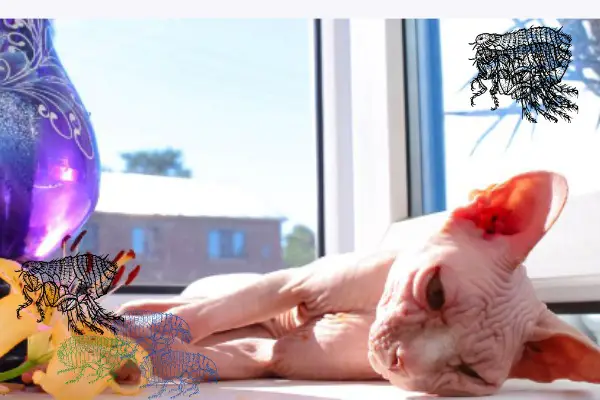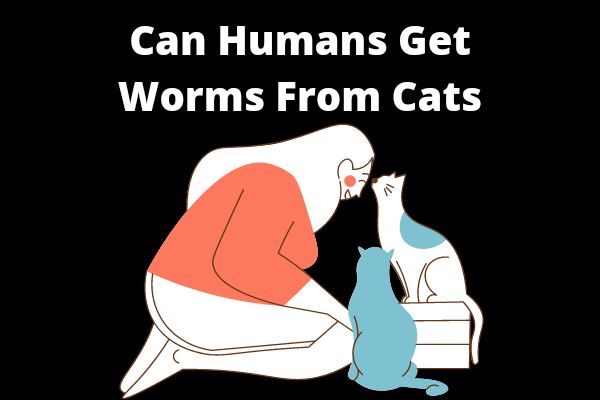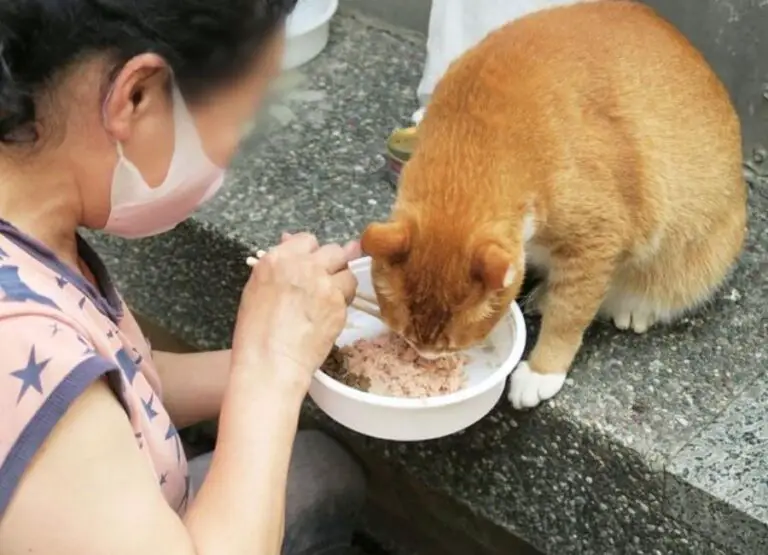Cat Lethargic Not Eating or Drinking [Reasons]
![Cat Lethargic Not Eating or Drinking [Reasons] Cat Lethargic Not Eating or Drinking](https://petcreeks.com/wp-content/uploads/2023/02/Cat-Lethargic-Not-Eating-or-Drinking.jpg)
Do you think your cat has been acting a little sluggish lately?
They don’t seem to be eating or drinking anything and appear to be a little sick. You are not alone, so don’t worry!
We’ll examine some of the possible reasons for a cat’s sluggishness and lack of appetite in this blog post, as well as some advice on how to perk them up again.
Please keep reading and staying attentive; your cat will appreciate it.
Cat Lethargic Not Eating or Drinking
Your cat’s lethargy, lack of appetite, or inability to drink could be symptoms of a medical condition.
This could be anything from infection to liver disease to kidney failure.
It’s critical to seek veterinary care as soon as your cat starts exhibiting these symptoms to determine the cause and provide the proper care.
Lethargy, a lack of appetite, or thirst may also be brought on by stress, anxiety, or an underlying psychiatric illness.
Provide your cat with a safe and secure environment if the issue is psychological so they can feel at ease.
Also, giving your cat a lot of excitement and company helps lower stress levels and promote good eating and drinking habits.
Let’s break it down further…
Potential reasons why your cat is lethargic, not eating, or drinking
There are several likely reasons why your cat may be lethargic and not eating or drinking. Here are some possible causes:
Illnesses
Lethargy, loss of appetite, and decreased thirst can all be symptoms of many cat disorders.
For instance, toxins might accumulate in the blood as a result of kidney illness, making your cat feel ill.
Lethargy and loss of appetite are symptoms of liver disease, whereas diabetes can make your cat lose weight, feel lethargic, and drink more water than usual.
Take your cat to the vet for an examination if they see any symptoms of the disease.
To make your cat feel better, your veterinarian can identify the underlying issue and provide a treatment strategy.
Trauma
Your cat could become lethargic and stop eating or drinking if it has been hurt or has undergone stress.
Trauma can result from anything, from a slip to a vehicle crash.
It’s crucial to take your cat to the doctor for an examination if you think it may have experienced trauma.
Your veterinarian can identify any wounds and create a treatment strategy to aid your cat’s recovery.
Poisoning
Lethargy, loss of appetite, and other symptoms are possible if your cat consumes anything toxic, such as a chemical or plant that is hazardous.
Cats can be poisoned by a variety of everyday home products, including lilies, chocolate, and human medications.
It’s crucial to get your cat to the vet right away if you think it may have consumed something poisonous.
Your cat can receive treatment from your vet to aid in its recovery.
Dental problems
Dental issues in cats, like gum disease, tooth decay, or damaged teeth, can make it painful for them to eat or drink.
If your cat is in discomfort, it could not want to eat or drink, which would make it lethargic.
Your veterinarian might advise a dental cleaning or the extraction of any damaged teeth if your cat has dental issues.
To avoid recurrent dental issues, they might also suggest dietary or dental care routine changes for your cat.
Presence of Parasites
Lethargy, loss of appetite, and decreased thirst in cats are all symptoms of flea, tick, and worm infestations.
It’s crucial to take your cat to the vet for treatment if you think it may have a parasite infection.
Learn more about it side effects of deworming cats.
Dehydration
Cats must drink water to be alive, and if your cat isn’t getting enough, it might become dehydrated very rapidly.
Lethargy, loss of appetite, and other symptoms may result from this.
You must make sure that your cat always has access to fresh, clean water.
It’s crucial to urge your cat to drink more water if they’re dehydrated.
To make your cat’s food moister, you can try adding water, providing a water fountain, or switching to wet food.
Heatstroke
Because they are heat-sensitive, cats are susceptible to heatstroke if exposed to high temperatures for an extended period of time.
Lethargy, dehydration, and loss of appetite may result from this.
Cooling your cat down quickly is crucial if they are suffering from heatstroke.
You can achieve this by relocating them to a cooler location, offering them cool beverages, and wrapping their bodies in cool, moist towels.
It’s crucial to get your cat to the vet right away if you think it might be suffering from heatstroke.
Stress or anxiety
Cats are sensitive animals that might experience stress or anxiety for a variety of causes.
Stress can be brought on, for instance, by a change in their environment, such as moving to a new home or introducing new pets.
Your cat may get agitated and lethargic while you are gone from home due to separation anxiety.
There are various things you can do to make your cat feel more at ease if they are stressed or anxious.
You can give them a comfy bed or hiding place where they can retire in safety and comfort.
To make your cat feel more tranquil and at ease, you can also try utilizing pheromone sprays or diffusers.
A possible sign of cancer
Cats can unfortunately develop cancer, which can manifest as lethargy, loss of appetite, and other symptoms.
It’s crucial to seek veterinarian care if your cat exhibits these symptoms for an extended length of time in order to rule out cancer and other serious diseases.
Your cat’s chances of recovery can be increased with early detection and treatment.
Based on the type and stage of cancer, your veterinarian can suggest several treatments if your cat has been diagnosed with it.
Surgery, chemotherapy, and radiation therapy all fall under this category.
Palliative care may be suggested in some circumstances to assist manage your cat’s symptoms and enhance their quality of life.
Allergies
Some foods, pollen, or other things can induce allergies in cats, which can result in lethargy, appetite loss, and other symptoms.
Your veterinarian can assist you in locating the allergen and creating a treatment plan if you suspect that your cat has an allergy.
Home Care for Lethargic Cats
The underlying reason for a cat’s lethargy will determine how to care for it at home.
In most circumstances, it entails offering rest, a calm setting, a healthy diet, and lots of water.
The cat may also require medication or other treatments if it is unwell.
The cat may benefit from vitamins, anti-arthritis drugs, joint support, or other age-related treatments if it is elderly.
If the cat is hurt, it might require physical therapy, pain medication, and wound care.
The cat may also require supportive care, behavior modification, and other therapy if it has a psychological condition.
When to Take Your Lethargic Cat to the Vet
If your cat’s lethargy lasts more than 24 hours or is accompanied by additional signs or symptoms such as vomiting.
Difficulty breathing, collapsing or being unable to wake up, frequent vomiting, long-lasting abdominal discomfort, and problems peeing.
Having a seizure, yellow discoloration of the skin, odd litter box behavior, overwhelming exhaustion, unexpected changes in appetite, or dragging back the ears appear, it is crucial to take your cat to the vet as soon as possible.
It is essential to visit a veterinarian if you are worried about your cat’s health in order to determine the underlying problem and create a treatment plan.
Tips
If your cat shows signs of lethargy, isn’t eating, or isn’t drinking, take them to the doctor as soon as you can.
The sickness could be caused by a number of things, such as stress, an obstruction in the digestive system, or an underlying medical issue.
The veterinarian will be able to do an examination, determine the root of the issue, and provide treatment.
Surgery, medication, and fluids are all viable therapeutic options.
You might also try to entice your cat to consume food and liquids by providing them with tempting and nutritional food and clean, fresh water.
Offering your cat tuna juice or tuna water can also help get them to eat and drink, but it’s vital not to overdo it.
Conclusion
You may quickly restore your cat to normal behavior by taking the time to determine the underlying cause of its sluggishness and lack of appetite.
To ensure your cat is healthy and safe, visit a veterinarian if the problem persists.
You can ensure that your cat receives the most outstanding treatment by knowing the probable reasons for its sluggishness.
With the appropriate method, you may quickly restore your cat to its normal, joyful, and active self!




![10 Signs of Depression in Cats [Causes & Tips] Signs of Depression in Cats](https://petcreeks.com/wp-content/uploads/2021/07/Signs-of-Depression-in-Cats.jpg)

![How Do Cats Get Leukemia [9 Top Ways] How Do Cats Get Leukemia](https://petcreeks.com/wp-content/uploads/2023/04/How-Do-Cats-Get-Leukemia-768x555.jpg)